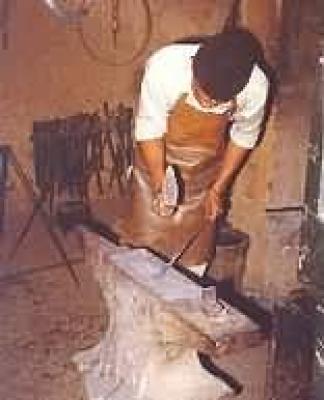This living open air museum portrays the life style of the early pioneer farmers. Each building is representative of a certain agricultural industry in the Western Cape during the period 1690 to 1900.
The unique cultural historical value of the Open Air Museum lies in the fact that it not only preserves early architecture and articles of use in agricultural and home industries, but also keeps these activities and industries alive.
A wide variety of home industries and agricultural activities are performed like:
- blacksmithing (making old-fashioned hinges, iron-nails, pothangers and candle holders),
- bread baking in the outside oven where stone-ground flour milled in the water-mill is used
- tobacco rolling in the tobacco shed using Virginia tobacco, planted and cured on the premises.
Other chores done as the need arises include coffee roasting, witblits distilling, jam making, soap making, milk tart baking, the plucking of geese - all activities connected with grape-pressing, slaughtering, sheep-shearing and the milking of the cows, as well as seasonal exhibitions.
Buldings and items to be viewed includie Cartwright's Shop, Town House, Roller-mill, General Dealer, Lime Kiln, Khoi-Khoi Huts, Tobacco Shed, Soap Kitchen, Water-mill, Horse Gear, Harrness Room, Thong Curing, Dipping Kraal, Witblits Stills and Lye Pots.
In addition to the depiction of early architecture, there is an extension which represents the development of agriculture up to the 1940's.
There is also a tea room & restaurant, curio shop selling curios such as confectionery, gifts, witblits, etc. as well as a nursery.


